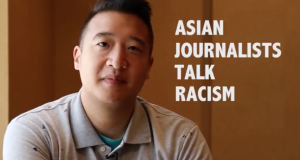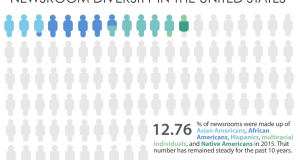At the Republican National Convention, New Mexico delegate Lisa Shin declared Donald Trump as the only presidential candidate that could protect the American dream.
But the daughter of South Korean immigrants and founder of Korean Americans for Trump said in an interview with VOICES that she also had misgivings about the billionaire New Yorker’s inflammatory comments toward Asian nations and suggested she would have said things differently.
Trump has called China’s trade policies the “greatest theft in the history of the world” and decried how the country is “raping” the U.S.
He has also mockingly imitated Asian accents at his rallies, asked a Texas-born Asian-American college student if he was from South Korea (he wasn’t ) and described the Philippines — a longtime ally of the U.S. — among those he considered “terrorist nations” as he called for greater oversight over legal immigrants.
Trump’s campaign did not respond to requests for comment.
As of Wednesday, the Republican party had not confirmed whether it would send a representative to the AAJA/APIAVote presidential town hall.
“There’s no doubt that Trump’s rhetoric has alienated Asian-American voters,” Shin said. “I tell people to look past rhetoric, and look at his proposals.”
Experts say that rhetoric is turning off Asian Americans from joining the Republican party.
A recent survey by APIAVote, a nonpartisan organization that aims to mobilize Asian Americans and Pacific Islanders to vote, found that Asian Americans 46% view the party unfavorably and 28% view it favorably. Meanwhile, the proportion of Asian Americans who identify as Democrats increased by 12 percent from 2012 to 2016, according to the survey.
Asian Republican activists and other political analysts say this could be a major problem for the Republican party since Asian Americans are the fastest growing racial group in the nation.
“I think Trump will do great harm to Republicans’ ability to capture support in minority communities,” said Lanhee Chen, a Taiwanese-American who served as a policy director for Mitt Romney’s 2012 campaign.
Chen argues that Asians should be a natural fit for the Republican party since many GOP tenets are consistent with Asian values, like the notion of individual responsibility, a belief that everyone should have opportunity to succeed, the importance of a good education and economic conservatism.
But Julio DeGuzman, chair of the San Diego Asian American Republican Coalition, says the Republican Party needs to do a better job of explaining its platform to Asian American voters.
“I have a lot of Asian friends who are registered Democrats, but they believe in lower taxes, strong military, and smaller government,” said DeGuzman, who is Filipino American. “Why are they Democrats?”
Following the 2012 election, the GOP stepped up its outreach to the AAPI community.
But Taeku Lee, a UC Berkeley professor who researches Asian American voting behaviors, said that it is hard to tell how successful the efforts were, since exit poll data on Asian Americans tend to be unreliable.
Lee added that Democrats have simply done a better job promoting Asian Americans within the party. He claims they’ve made an “unprecedented” number of political appointments, from the First Lady’s Chief of Staff to ambassadors to cabinet heads and more.
Chen, now a research fellow at Stanford, said he is making efforts to change the “hostile and inward-looking” image of the party that Trump’s campaign has cultivated.
“I hope that once the election is over, the Republican party will return to some prescriptions we laid out after losing in 2012: to create a party that’s forward-looking, opportunity-driven and open,” he said.
 VOICES Publishing from the AAJA National Convention
VOICES Publishing from the AAJA National Convention








